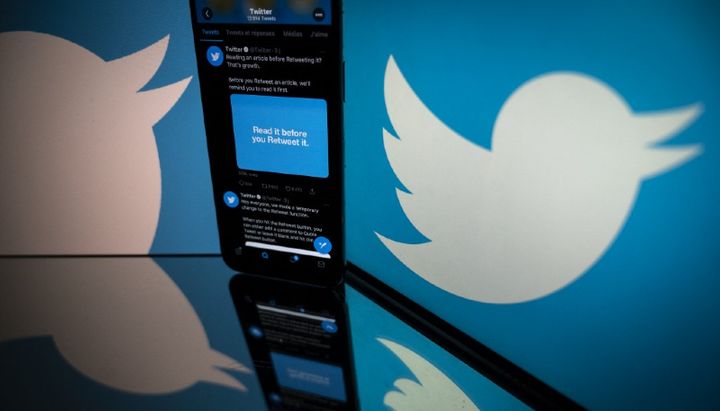Ads that deny the reality of climate change were banned by Twitter on Friday.
On Earth Day, Twitter made the announcement as it tries to fend off a hostile takeover bid from billionaire Elon Musk, who has stated that people should be able to say whatever they want on the platform.
In a blog post, Twitter global sustainability manager Casey Junod said, “Misleading advertisements on Twitter that contradict the scientific consensus on climate change are prohibited, in line with our inappropriate content policy.”
“We believe that climate denial should not be made profitable on Twitter, and that misleading advertisement should not detract from important discussions about the climate crisis.”
Last year, Twitter launched a Topic feature to help users find conversations about climate change, as well as hubs of “credible, authoritative” information on a variety of high-profile topics, such as climate change science.

“We recognise that false information about climate change can sabotage efforts to protect the environment,” Junod said.
“Now, more than ever, all of us must take meaningful climate action.”
As appealing as access to Musk’s wealth maybe, Twitter does not want to be ruled by a billionaire who is known for acting without thinking about the consequences of his actions.
The global one-to-many messaging platform is taking steps to prevent Musk from acquiring all of Twitter’s outstanding shares, indicating that concerns about his leadership style outweigh the potential payoff.
Musk, the world’s richest man and a controversial and frequent Twitter user, made an unsolicited $43 billion (roughly Rs. 3,28,800 crore) bid for the social media network earlier this month, citing improved freedom of speech as a motivation.
Musk favors a hands-off approach to content policing, which can be difficult in high-profile cases like that of former US President Donald Trump, who was banned following his supporters’ assault on the Capitol in an attempt to overturn the US election result last year.
However, the polarising Tesla CEO’s campaign has alarmed technology and free-speech experts, who point to Musk’s erratic statements and history of bullying critics as contradicting his stated goals.
The board of Twitter decided to use a “poison pill” defense, in which any acquisition of more than 15% of the company’s stock without its approval would trigger a plan to flood the market with shares, making a takeover more difficult.
Why does Elon Musk want to buy Twitter?
Elon Musk purchased slightly more than 9% of Twitter on March 14th, making him the company’s largest outside shareholder. On April 10th, it appeared that he would join the board of directors, as announced by Twitter’s CEO, Parag Agrawal, but that possibility had faded by then. On April 14th, Musk made an offer to buy the rest of Twitter and take it private for $54 and 20 cents per share. The offer valued the company at around $43 billion, significantly higher than its current market capitalization of nearly $36 billion. Musk’s efforts have sparked a corporate drama worthy of “Succession,” with talk of hostile takeovers, proxy battles, and board replacements all being discussed as ways to get the deal done.
Musk is worth around $280 billion, thanks in part to Tesla’s market capitalization of more than a trillion dollars, and he has pledged $21 billion in personal equity to take Twitter private. The social media platform is insignificant. A deal of some sort appears to be on the cards if Musk can gather the necessary funds. His motivation for using Twitter in the first place is less clear.
Twitter has a reputation for being a dysfunctional company. It has been unable to keep up with competitors such as Facebook and TikTok, and its updates and new features have arrived infrequently and inconclusively, causing users to become irritated. Since its inception in 2006, its advertising-based business model has hardly changed. Twitter’s dual status as a complete disaster and a hugely influential platform make it an easy target: it elicits strong reactions, including suggestions for how to fix it and calls to shut it down completely.
Musk appears to be hell-bent on bringing Twitter back to its former glory days when tweeting had fewer ramifications. Because Twitter is taken seriously as a public platform, it has suffered consequences. Musk was charged with fraud by the Securities and Exchange Commission in 2018 after tweeting about having the funds to take Tesla private at $420 per share, a move that resulted in him stepping down as the company’s chairman for three years and paying a $20 million fine.
Twitter is currently attempting to defend itself against Musk’s efforts. If any individual or group—presumably led by Musk—acquires more than 15% of the stock, the company adopts a “poison pill” policy that dilutes the stock and makes a tranche of new shares available to current holders. The cost of acquiring the company would rise as a result.